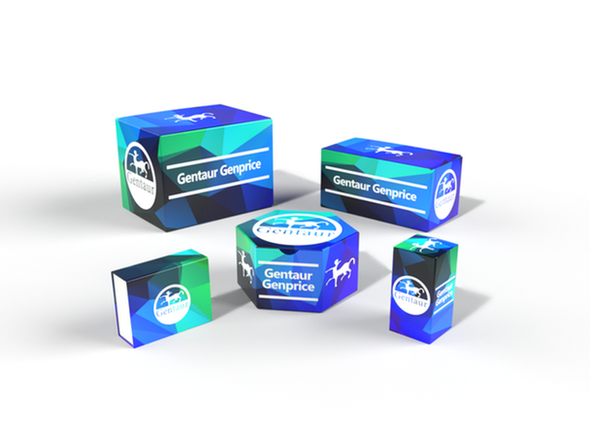Description
GLDC Antibody | 63-977 | Gentaur UK, US & Europe Distribution
Host: Rabbit
Reactivity: Human, Mouse
Homology: N/A
Immunogen: This GLDC antibody is generated from rabbits immunized with a KLH conjugated synthetic peptide between 49-77 amino acids from the N-terminal region of human GLDC.
Research Area: Obesity, Signal Transduction
Tested Application: WB
Application: For WB starting dilution is: 1:1000
Specificiy: N/A
Positive Control 1: N/A
Positive Control 2: N/A
Positive Control 3: N/A
Positive Control 4: N/A
Positive Control 5: N/A
Positive Control 6: N/A
Molecular Weight: 113 kDa
Validation: N/A
Isoform: N/A
Purification: This antibody is purified through a protein A column, followed by peptide affinity purification.
Clonality: Polyclonal
Clone: N/A
Isotype: Rabbit Ig
Conjugate: Unconjugated
Physical State: Liquid
Buffer: Supplied in PBS with 0.09% (W/V) sodium azide.
Concentration: batch dependent
Storage Condition: Store at 4˚C for three months and -20˚C, stable for up to one year. As with all antibodies care should be taken to avoid repeated freeze thaw cycles. Antibodies should not be exposed to prolonged high temperatures.
Alternate Name: Glycine dehydrogenase (decarboxylating) , mitochondrial, Glycine cleavage system P protein, Glycine decarboxylase, Glycine dehydrogenase (aminomethyl-transferring) , GLDC, GCSP
User Note: Optimal dilutions for each application to be determined by the researcher.
BACKGROUND: Degradation of glycine is brought about by the glycine cleavage system, which is composed of four mitochondrial protein components: P protein (a pyridoxal phosphate-dependent glycine decarboxylase) , H protein (a lipoic acid-containing protein) , T protein (a tetrahydrofolate-requiring enzyme) , and L protein (a lipoamide dehydrogenase) . The protein is the P protein, which binds to glycine and enables the methylamine group from glycine to be transferred to the T protein. Defects in this gene are a cause of nonketotic hyperglycinemia (NKH) .






